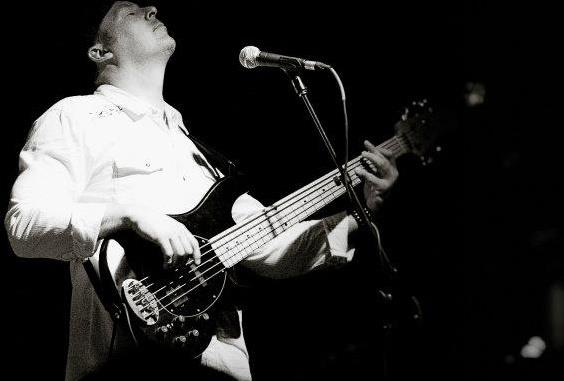A Message from the CEO | Creating a Strong, Rhythmic Foundation
As a working professional musician for over 30 years, I have been blessed with the opportunity to share the stage with many of the best musicians in the North Texas scene. My tool of trade is and always has been the bass guitar; Yes, I’m that guy. You know, the one who generally stands in the shadows along with the drummer “keeping the train on the tracks”, all the while, providing rhythmic and sonic support to vocalists, guitarists and soloists who shine nightly on the brightly lit stages of the metroplex. Was it always this way? No, it wasn’t.
Earlier in my career as a bassist, I found myself overly focused on a cliched, flashy, “look at me” playing style. While I did perform well enough, this sometimes created an unneeded sense of restriction on stage for my bandmates. I often say about that time, “I’ve never met a note I didn’t like” – Thanks a lot, Flea. This was juxtaposed to providing the core rhythmic foundation that makes a dependable and desirable bassist. But a funny thing happened as I matured as a player and more importantly as a person. What I’ve found is that I relish the responsibility of holding it all together, fundamentally. Being the fuel that drives the overall feel, tempo and dynamic is so incredibly satisfying when the band is on point. Throughout history, the bass player has been looked upon as a support player, and you know what? That’s ok. For the ultimate example, James Jamerson was an uncredited bass player who anonymously played on most of the Motown hits in the 60’s and 70’s, including Marvin Gaye’s “What’s Going On” and The Temptation’s “My Girl”, along with countless others. His bass lines defined an era of music and he is widely recognized as one of the most influential musicians of the 20th century. He was named the greatest bassist of all time by Rolling Stone magazine.

As the servant leader of United Tax Services, Inc., it is vital to lay out a vision for everyone in the organization, from our executives to our production team. Creating a strong, rhythmic foundation is fundamental to business longevity and success. And akin to my evolution as a musician, I’ve learned to step back and fully embrace the opportunity to provide cadence, structure, and direction, consequently carving out the space that our team needs to grow professionally and thrive. This approach promotes creativity and coordination throughout our organization and the freedom ultimately allows our talented “rock stars” to do what they do best, shine.
Lastly, it’s an interesting parallel and when I reflect upon the arc of my business career, music career, and personal life, I find that maturity is always the great equalizer. Be the fuel!
Relax and be happy,
CF




